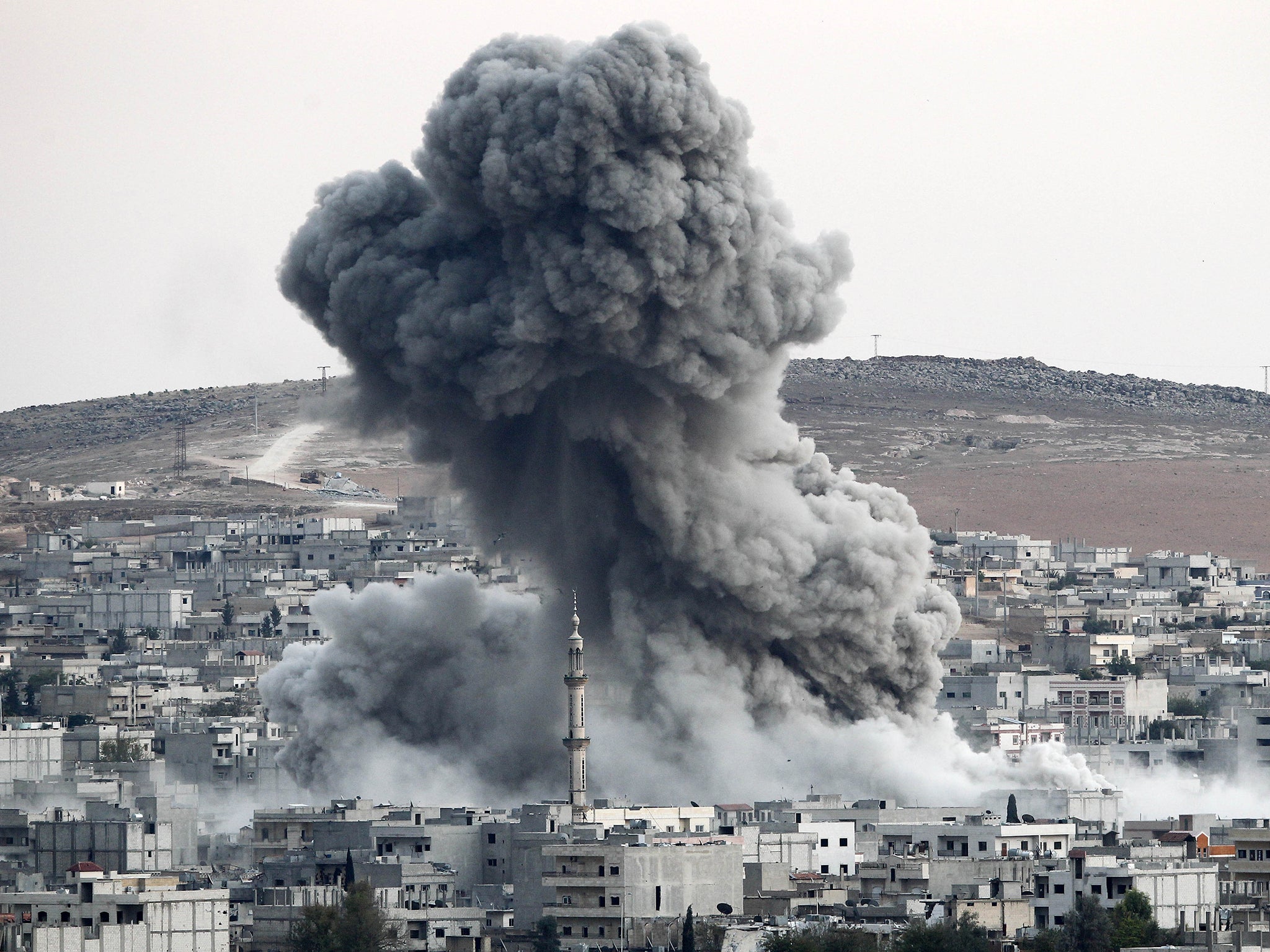Bombing Syria was a bad idea two years ago – and it still is
Isis is not regarded everywhere as the pariah it is here. For Western countries to oppose it with 21st-century force fuels new hatred in another generation


Here we go again. There has been an atrocity in foreign parts. The Government thinks it should do something, or at least be seen to be doing something. So it proposes a neat little application of the armed forces to inflict some punishment in the form of bombing from the safe distance of 30,000 feet. Honour saved; job done.
There are big differences, of course, between the chemical attacks against civilians in Syria that provoked international outrage two years ago, and the gunning down of British tourists on a Tunisian beach; and differences, too, between the purposes of the proposed intervention. Then, the mooted bombing was intended as part of an international effort to prevent President al-Assad’s use of chemical weapons against his own people (even though an EU report found that both government and opposition forces were culpable). Intervention was also seen as a means of weakening what then seemed to be Assad’s declining hold on power.
The proposed action now, as outlined yesterday by the Defence Secretary, Michael Fallon, is linked to the attack in Tunisia only tangentially, in so far as it would be directed against the assumed perpetrator in the broadest sense – the so-called Islamic State. The stated purpose is to make the existing UK contribution to the anti-Isis campaign more effective, by permitting the RAF to launch air strikes not just in Iraq, but in Syria. If Isis recognises no national borders, so the argument runs, then the anti-Isis forces must do the same.
If the context and targets are different today, the proposed remedy is the same: air strikes on Syrian territory designed to stop the enemy. And so, it must be said, are the dangers.
Air strikes may keep those who physically launch them out of the immediate firing line, but they have perils of their own. The UK-French intervention in Libya is the most glaring example, where air strikes initially designed to protect civilians changed the balance of forces on the ground and created conditions that led directly to the chaos that still afflicts the country today.
It is not clear how far the air strikes against Isis in northern Iraq have been successful, if at all, in curbing its advance. There appear to be ebbs and flows, with some – especially in the US – insisting that this is a conflict that cannot be fought only from the air. To date, UK involvement beyond flag-showing has been small: the vast majority of sorties are being flown by US planes, with some also contributed by the Gulf States and Jordan. Only around 5 per cent are flown by British pilots.
Even a remote operation, though, carries dangers. At the most basic level, there is always the risk of a plane being shot down and the crew held hostage. Nor is Isis regarded everywhere as the pariah it is here. For Western countries to oppose it with 21st-century force fuels new hatreds in another generation.
Successive UK governments have justified such intervention by saying that “we” are fighting “over there”, so we do not have to fight “over here”. But the argument also works the other way. If we had not fought “over there”, the fight might not have been brought “over here”. The British public is admirably resilient – as seen in the affecting replays and reminiscences as we approach the 10th anniversary of the 7/7 London bombings. But foreign intervention, especially in today’s connected world, is likely to have consequences.
At least the current legal position with the anti-Isis air strikes is unambiguous. Iraq has given permission for this intervention. The legal justification for the Iraq war was, at the very least, more questionable. Syria is different again. While the air strikes proposed by the Defence Secretary would target Isis forces, not Assad’s – and might even draw Assad’s tacit agreement – this is a volatile situation. If, as Fallon promised, MPs are given a vote on extending air strikes to Syria, legality is something they will have to consider, among much else.
It is right that MPs should make that decision. Two years ago, they inflicted perhaps the most significant defeat David Cameron has suffered as Prime Minister – less in numerical terms, than in its repercussions. The vote persuaded President François Hollande to call a debate (though not a vote) in the French Parliament. It persuaded President Barack Obama not only to rethink the US commitment to air strikes in Syria, but to cede a chunk of his power, in delegating to Congress the right to make such decisions in future.
For all the significance of that UK vote, the reasons were probably not as straightforward as they now seem. MPs may have been cross about being recalled early from their summer break; they may have been stung by the memory of Iraq; they faced vocal objections from constituents. But the fact is that, by 285 to 272, Parliament drew a line under a divisive and destructive 10 years of British intervention.
It is understandable if Cameron now wants, even subliminally, to blot out that defeat by achieving a different result in a new vote. There are those who maintain that the failure of the UK, and especially the US, to intervene in Syria two years ago, not only bolstered Assad and prolonged the suffering of Syrians, but itself contributed to the rise of Isis. But that “what if?” argument can, and should, be countered by another “what if?”. What if air strikes had escalated into the deployment of troops on the ground, into UK hostages, military casualties, and even more of a bloodbath in Syria than there already is? What if the UK had become ensnared in the tangle of conflicts bloodily redrawing borders across the region, conflicts that may have decades or more left to run?
MPs were right when they voted as they did two years ago. Whether it is couched in legal, military, moral or practical terms, the case against UK intervention in Syria holds today.



Join our commenting forum
Join thought-provoking conversations, follow other Independent readers and see their replies